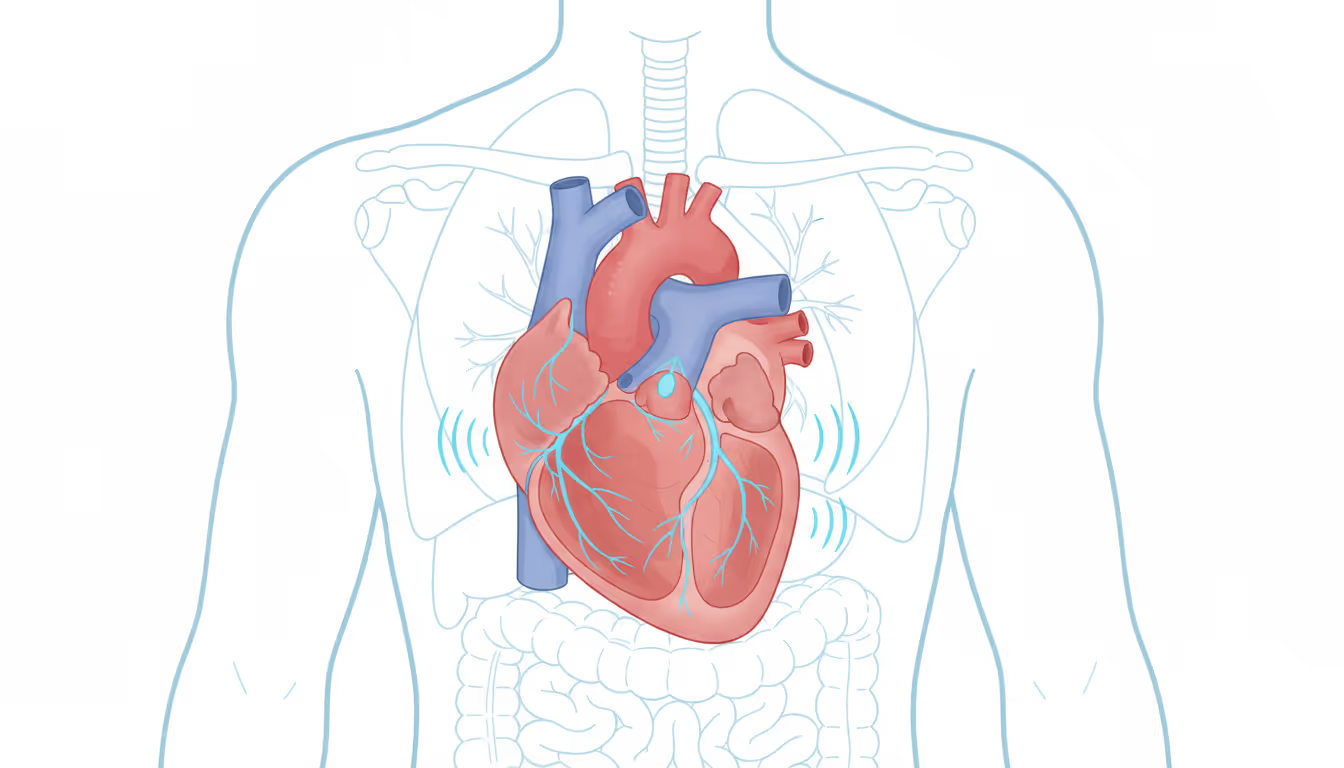
Sinus rhythm is the heart's usual, steady rhythm established by its natural pacemaker, known as the sinoatrial node. This node is situated in the wall of the right atrium, which is the heart's upper right chamber. The heart's normal electrical impulses originate from this point and are transmitted to the atria and then to the ventricles, the heart's lower chambers. Sinus arrhythmia describes the typical increase in heart rate during inhalation, a normal physiological response that is more pronounced in children than adults. Sinus tachycardia occurs when the sinoatrial node fires rapidly, leading to a fast heartbeat. This can be triggered by factors like physical activity, excitement, pain, fever, excessive thyroid hormones, low blood oxygen levels, or stimulant drugs such as caffeine.When normal sinus rhythm is absent, it results in arrhythmia, which is an irregular heart rhythm.




